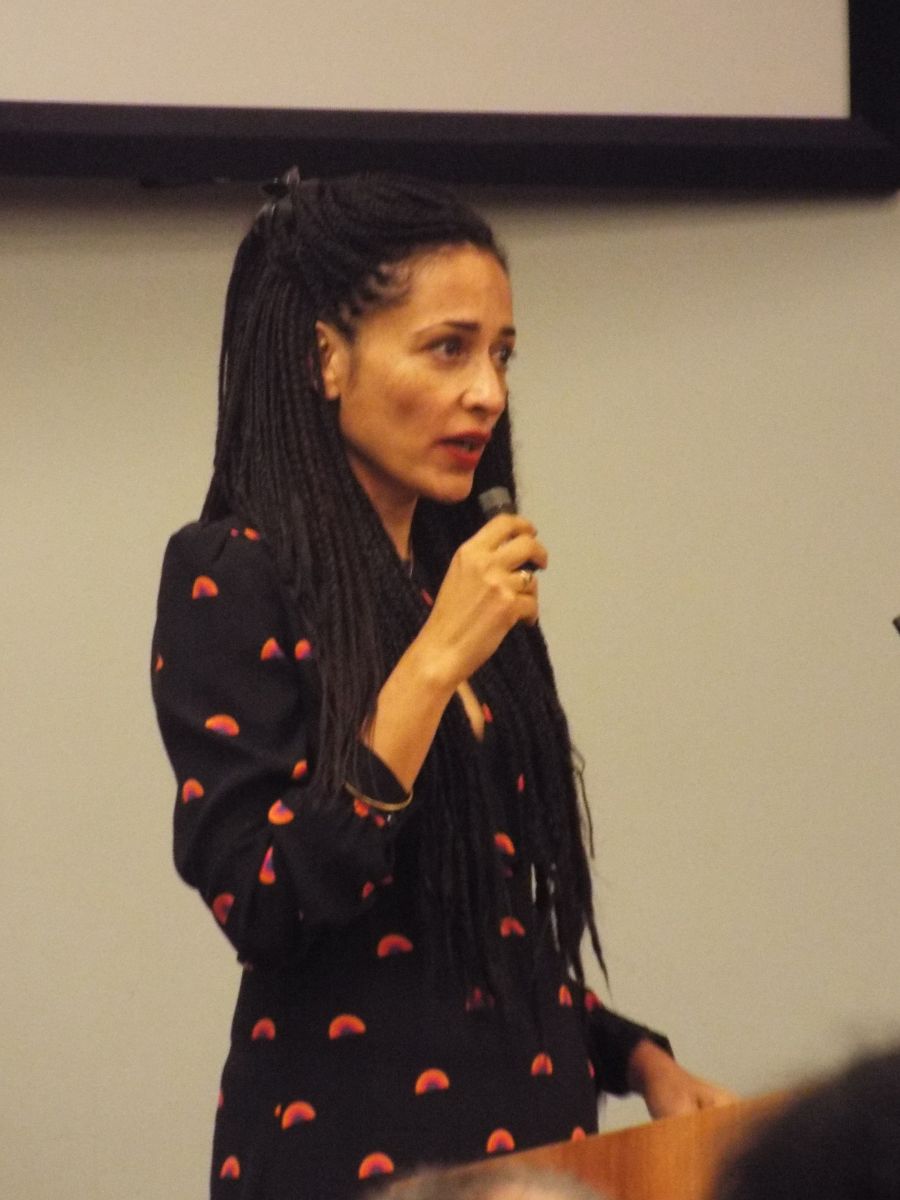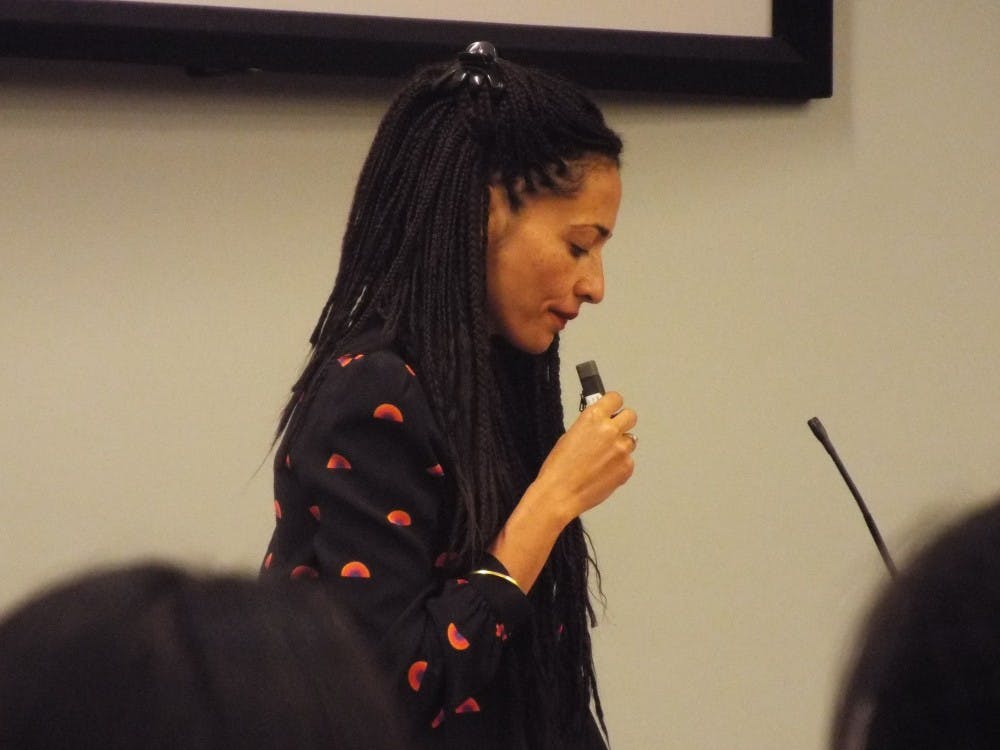By SHERRY SIMKOVIC For The News-Letter
The President’s Reading Series and the Writing Seminars Department hosted Zadie Smith, an acclaimed English author and essayist, on Tuesday.
Smith was born in northwest London in 1975 to a Jamaican mother and a British father. She studied English literature at King’s College at the University of Cambridge.
Smith’s first novel, White Teeth, was published in 2000, and she has published three other novels since. Her works often focus on race and the postcolonial identity.
Smith has also taught at Harvard University, Columbia University and New York University. She was elected a fellow of the Royal Society of Literature in 2002.
Andrew Motion, Homewood Professor of the Arts, introduced Smith.
“From the day she published her first novel, we knew she had started something, was on the cusp of something new,” Motion said. “We know ahead of time where some of the best writing in the coming years is going to come from; it’s going to come from her.”
At the event, she read the first two chapters of her most recent book, Swing Tree.
“Imagine someone is telling you a story,” Smith said, before starting to read. “This is not going to be any more complicated than that.”
She explained that the novel focused on two young biracial girls who dance. One character,Tracy, has a black mother and a white father. Tracy is a talented dancer and has an upturned nose. The narrator, known only as “I”, has a white mother and a black father and is not as talented a dancer.

The novel is split into two parts: one that focuses on the two girls’ childhood growing up in a poor part of London and their dancing, and another that focuses on the girls’ life in college. Tracy continues to dance in college while the narrator escapes her life and goes to college by the sea.
Central to the girls’ lives is the American singer Ilana, whom the narrator ultimately ends up working for. In the first chapter Ilana and the narrator have become very familiar with each other. At the beginning of the chapter, the narrator explains that Ilana had been unable to remain anonymous in any part of the world for some time now.
“But that wasn’t the tragic part,” Smith read. “The tragic part for Ilana would have been to live a normal life. Everything that happened to her was understood as part of her destiny. She always understood that she was meant to be phenomenal.”
The narrator continues to say that Ilana was like her mother in this way. She emphasizes that her mother was a source of inspiration for others.
“[She was] speaking for those who are unable to speak for themselves,” Smith read.
In the novel’s first concrete scene, the narrator and Tracy attend the birthday party of Annie, a white girl. Tracy and the narrator are the only black guests at the party and arrive wearing overly formal clothing. Tracy becomes hostile, and Annie’s mother takes the girls to the movies, where she cannot control Tracy or the narrator.
Everyone returns to Annie’s house and Annie’s mother suggests that the girls go and “have an adventure,” a phrase that sparks something within the narrator.
The girls proceed to go upstairs and “put on a show,” in which Tracy and the narrator dance to music dressed in Annie’s mother’s camisoles. Annie’s mother is not pleased and the girls stay upstairs until the narrator’s mother comes to pick them up. The mothers quarrel, and Annie’s mother attacks the other woman based on racial differences.
The girls leave the party and the narrator’s mother says that if they ever pull a stunt as they did she’ll cut both their tongues out.
“You think you’re white. Is that what you think?” the nameless narrator’s mother asks.
After making this point Smith introduced the second chapter, saying it can be difficult for readers to fully comprehend.
“[It is] a lesson in sex and language that is hard to precisely interpret,” she said.
The narrator introduces the second chapter by stating that she messed up her exams and has subsequently enrolled in a college by the sea. Here, black students gather together and discuss their pasts. The narrator discovers her peers are largely first generation college students. She says that she felt free during this period of her life and wanted to share the experience with her mother.
When the narrator’s mother does come to visit, they fight. Her mother is not impressed by the school, calling it a trumped up hotel for kids whose parents were not educated themselves.
“What was good enough for others was rarely good enough for her,” Smith read.
Smith reads that during her college years, the narrator begins a relationship with an egotistical man.
“I thought he was the most beautiful man in the world and he thought so too,” Smith read. “He thought himself a god.”
He introduced her to several new ideas, and the concept of black repression and the impact of colonialism on black people particularly impacted the narrator. Although the narrator breaks up with him, these ideas influence her for years to come.
Smith ended the talk by quoting the last line of the chapter.
“I did not want to rely on each European fact having a black shadow... I wanted life,” Smith read. “I wanted movement.”

















